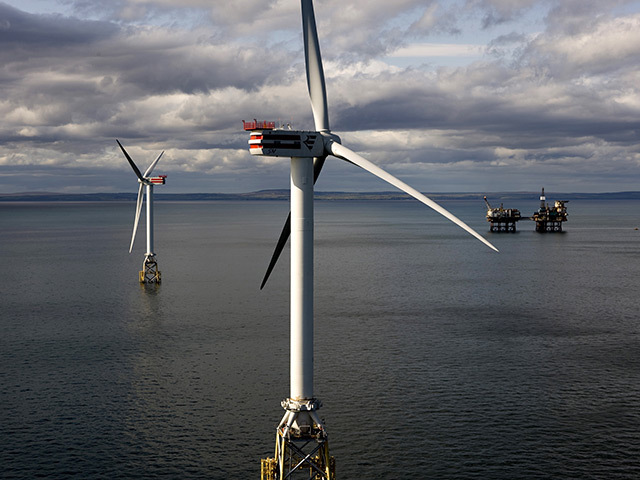
Future UK Government budgets for offshore wind are unlikely to support Scotland’s ambitions to develop the industry, the first minister has said.
Nicola Sturgeon has called on the government to act now to provide confidence to the sector by increasingboost budget allocations to allow offshore wind to be delivered on a far greater scale.
Sturgeon’s plea comes after the results of the first contracts for difference auction were announced last week.
The auction awarded 15-year contracts which guarantee a price for the power generated as part of the government’s plan to encourage renewable energy.
Offshore wind projects competed for a share of £260million-£155 million for projects commissioning from 2016-17 and an additional £105million for schemes commissioning from 2017-18 onwards.
Only one Scottish offshore windfarm received a contract, while two major offshore windfarms were refused, leaving uncertainty over their future development, Ms Sturgeon said.
She argued that Scottish wind power is now “substantially cheaper than nuclear”, and said that onshore wind development shows long-term investment on a large-scale leads to substantial cost reductions.
Speaking ahead of a visit to Whitelee Wind farm, Scotland’s largest onshore windfarm, the first minister said: “Scotland has made huge progress in renewables deployment in Scotland, generating enough renewable energy to meet 44% of Scotland’s annual electricity demand, generating millions of pounds of community benefit, and displacing an estimated 12million tonnes of carbon dioxide across the UK.
“Scottish onshore wind is now considerably cheaper than new nuclear; thanks to sustained support and large-scale deployment of projects such as Scottish Power’s Whitelee development.
“The UK Government must now show greater ambition for the Scottish offshore sector.
“We are already seeing cost reductions in offshore wind but the scale of growth planned for the sector will be a key driver to delivering further cost reductions for the long-term benefit of consumers.
“It is essential that the UK Government provide confidence to the offshore wind industry that sufficient money will be available in future allocation rounds to allow the sector to move forward with assurance and enable costs to be further reduced.
“Without this ambition Scotland risks missing the opportunity to cement the growth of an industry, with significant supply chain benefits, while decarbonising our energy supply.”
Recommended for you
